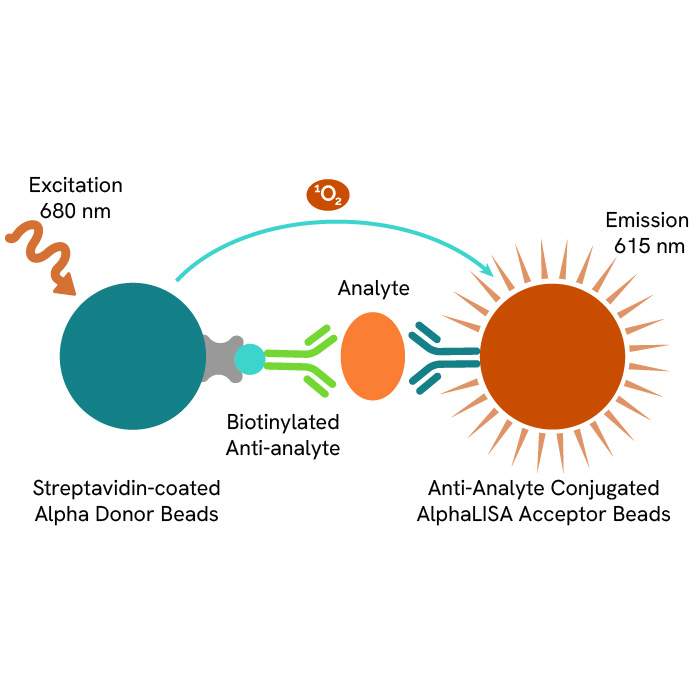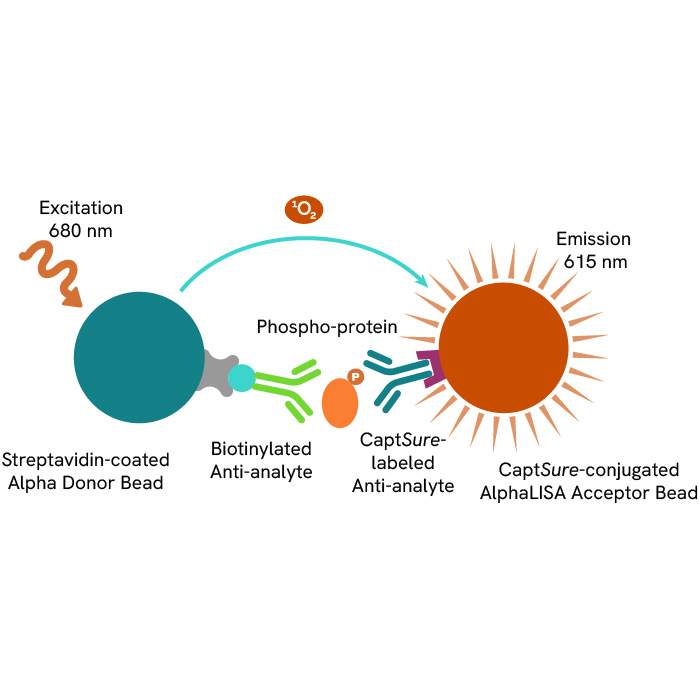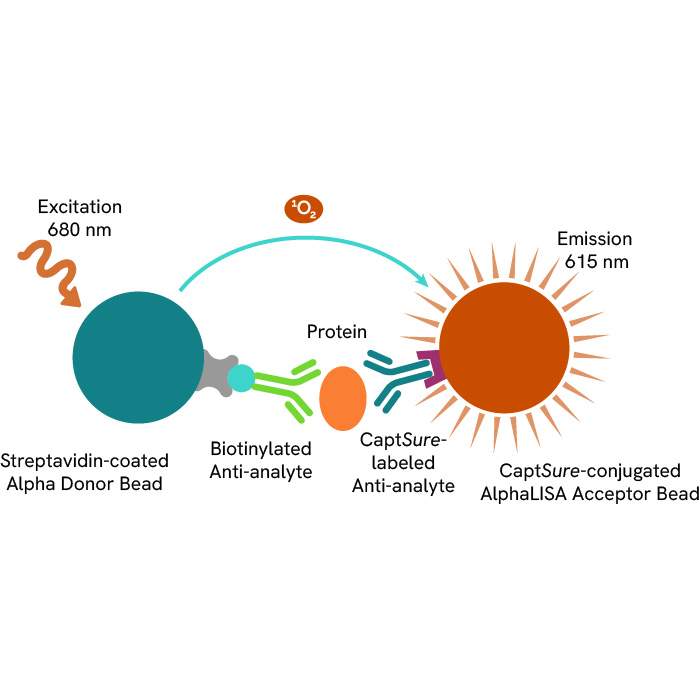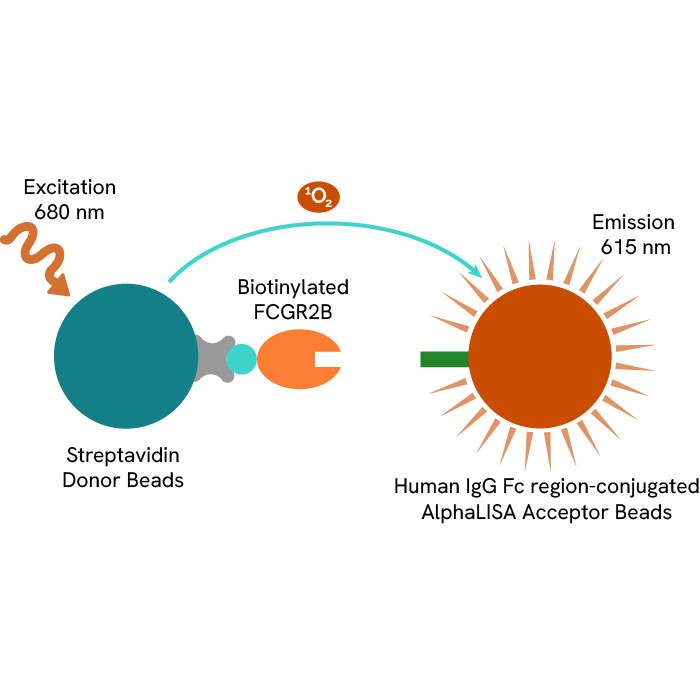Explore our solutions

Target area
Explore cell-based and biochemical assays by target area of interest, including cell and gene therapy, GPCRs, targeted protein degradation, and more.
- Biologics screening and characterization: Explore assays for biologics screening, mechanism-of-action studies, and biomanufacturing.
- Biomarker detection: Accurate detection and quantitation of molecular targets across serum, plasma, culture supernatants, cellular lysates, and other sample types.
- Cell and gene therapy: Discover and advance cell and gene therapy research with bioanalytical immunoassays for CGT development.
- Cytokines: Access a comprehensive range of cytokine assay kits, including interleukins, interferons, chemokines, tumor necrosis factors, and lymphokines.
- Epigenetics: Leverage our epigenetics toolbox, designed to detect specific methylation and acetylation marks on histone peptide substrates.
- GPCRs: Measure cAMP levels and track downstream protein phosphorylation with functional GPCR assays.
- Protein kinases: Explore an extensive portfolio of protein phosphorylation assays, available in cell-based or biochemical no-wash formats.
- Protein-protein interactions: Utilize highly sensitive assays to study protein interactions involved in a range of biological processes.
- Targeted protein degradation: Monitor protein expression levels and characterize the mechanism of action using our total and phospho kits.
Explore cell-based and biochemical assays by target area of interest, including cell and gene therapy, GPCRs, targeted protein degradation, and more.
- Biologics screening and characterization: Explore assays for biologics screening, mechanism-of-action studies, and biomanufacturing.
- Biomarker detection: Accurate detection and quantitation of molecular targets across serum, plasma, culture supernatants, cellular lysates, and other sample types.
- Cell and gene therapy: Discover and advance cell and gene therapy research with bioanalytical immunoassays for CGT development.
- Cytokines: Access a comprehensive range of cytokine assay kits, including interleukins, interferons, chemokines, tumor necrosis factors, and lymphokines.
- Epigenetics: Leverage our epigenetics toolbox, designed to detect specific methylation and acetylation marks on histone peptide substrates.
- GPCRs: Measure cAMP levels and track downstream protein phosphorylation with functional GPCR assays.
- Protein kinases: Explore an extensive portfolio of protein phosphorylation assays, available in cell-based or biochemical no-wash formats.
- Protein-protein interactions: Utilize highly sensitive assays to study protein interactions involved in a range of biological processes.
- Targeted protein degradation: Monitor protein expression levels and characterize the mechanism of action using our total and phospho kits.

Therapeutic area
Explore cell-based and biochemical assays by your therapeutic area of research, including oncology, neuroscience, metabolic diseases, and more.
- Autoimmune diseases: Comprehensive reagents for autoimmune disease research, including rheumatoid arthritis, lupus, inflammatory bowel disease, multiple sclerosis, and more.
- Obesity, diabetes, and metabolic diseases: Solutions for drug discovery in obesity, diabetes, and metabolic diseases, featuring assays for biomarker detection, protein analysis, and GPCR research.
- Fibrosis: Ready-to-use assays for monitoring biomarkers, phosphoproteins, and transcription factors relevant to fibrotic disease research.
- Immuno-oncology: Assays for studying immunity and immune cells, covering protein, biomarker, and cytokine detection, as well as cell toxicity and proliferation.
- Oncology: A comprehensive oncology portfolio, including assays for cytokines, biomarkers, phospho-proteins, cell proliferation, cytotoxicity, and more.
- Neuroscience: A wide range of neuroscience assays to support research in neurodegenerative disorders such as Alzheimer’s, Parkinson’s, and Huntington's disease.
- Virology: Assay technologies for viral studies, enabling assessment of viral life cycles and antiviral immune responses with streamlined workflows.
Explore cell-based and biochemical assays by your therapeutic area of research, including oncology, neuroscience, metabolic diseases, and more.
- Autoimmune diseases: Comprehensive reagents for autoimmune disease research, including rheumatoid arthritis, lupus, inflammatory bowel disease, multiple sclerosis, and more.
- Obesity, diabetes, and metabolic diseases: Solutions for drug discovery in obesity, diabetes, and metabolic diseases, featuring assays for biomarker detection, protein analysis, and GPCR research.
- Fibrosis: Ready-to-use assays for monitoring biomarkers, phosphoproteins, and transcription factors relevant to fibrotic disease research.
- Immuno-oncology: Assays for studying immunity and immune cells, covering protein, biomarker, and cytokine detection, as well as cell toxicity and proliferation.
- Oncology: A comprehensive oncology portfolio, including assays for cytokines, biomarkers, phospho-proteins, cell proliferation, cytotoxicity, and more.
- Neuroscience: A wide range of neuroscience assays to support research in neurodegenerative disorders such as Alzheimer’s, Parkinson’s, and Huntington's disease.
- Virology: Assay technologies for viral studies, enabling assessment of viral life cycles and antiviral immune responses with streamlined workflows.
Featured resources


Filters
1 - 25 of 1697 Products and Services
The AlphaLISA™ Human Neurofilament Light (NF-L) Kit is designed for the simple and rapid quantification of human NF-L in cell supernatants.
The AlphaLISA™ SureFire® Ultra™ Human and Mouse Phospho-Rb (Thr821) assay is a sandwich immunoassay for quantitative detection of phospho-Rb in cellular lysates using Alpha Technology.
The AlphaLISA™ SureFire® Ultra™ Mouse Total RIPK1 assay is a sandwich immunoassay for quantitative detection of total RIPK1 in cellular lysates using Alpha Technology.
The AlphaLISA™ SureFire® Ultra™ Human Phospho-PERK (Thr982) assay is a sandwich immunoassay for quantitative detection of phospho-PERK in cellular lysates using Alpha Technology.
The AlphaLISA™ SureFire® Ultra™ Human Total Progesterone Receptor assay is a sandwich immunoassay for quantitative detection of total Progesterone Receptor in cellular lysates using Alpha Technology.
The AlphaLISA™ SureFire® Ultra™ Human and Mouse Phospho-PRAS40 (Thr246) assay is a sandwich immunoassay for quantitative detection of phospho-PRAS40 in cellular lysates using Alpha Technology.
The AlphaLISA™ SureFire® Ultra™ Human Phospho-eNOS (Ser1177) assay is a sandwich immunoassay for quantitative detection of phospho-eNOS in cellular lysates using Alpha Technology.
The AlphaLISA™ SureFire® Ultra™ Human Total p16 INK4A assay is a sandwich immunoassay for quantitative detection of total p16 INK4A in cellular lysates using Alpha Technology.
The AlphaLISA™ SureFire® Ultra™ Human Total PI3K p85 assay is a sandwich immunoassay for quantitative detection of total PI3K p85 in cellular lysates using Alpha Technology.
The AlphaLISA™ Detection Kit for Hepatitis B Virus Surface antigen (HBeAg) enables the quantitative determination of HBeAg in cell culture media and buffer using a homogeneous AlphaLISA assay (no wash steps).
The AlphaLISA™ SureFire® Ultra™ Mouse Phospho-RIPK1 (Ser321) assay is a sandwich immunoassay for quantitative detection of phospho-RIPK1 in cellular lysates using Alpha Technology.
The AlphaLISA™ SureFire® Ultra™ Human and Mouse Total MEK2 assay is a sandwich immunoassay for quantitative detection of total MEK2 in cellular lysates using Alpha Technology.
This kit is designed for the detection of binding between FCGR1 (CD64) and human IgG Fc fragment using a homogeneous AlphaLISA™ assay (no wash steps). This assay can facilitate the design and development of antibody therapetics by using competitive binding.
The AlphaLISA™ SureFire® Ultra™ Human Phospho-PI3K p85 (Tyr467) assay is a sandwich immunoassay for quantitative detection of phospho-PI3K p85 in cellular lysates using Alpha Technology.
The AlphaLISA™ SureFire® Ultra™ Human and Mouse Total NFκB2 p100 assay is a sandwich immunoassay for quantitative detection of total NFκB2 p100 in cellular lysates using Alpha Technology.
The AlphaLISA™ SureFire® Ultra™ Human and Mouse Phospho-MEK2 (Ser217/221) assay is a sandwich immunoassay for quantitative detection of phospho-MEK2 in cellular lysates using Alpha Technology.
The AlphaLISA™ SureFire® Ultra™ Human Total p21 CiP1 assay is a sandwich immunoassay for quantitative detection of total p21 CiP1 in cellular lysates using Alpha Technology.
The AlphaLISA™ SureFire® Ultra™ Human Phospho-RIPK1 (Ser320) assay is a sandwich immunoassay for quantitative detection of phospho-RIPK1 in cellular lysates using Alpha Technology.
The AlphaLISA™ SureFire® Ultra™ Human and Mouse Total NFκB2 p100/p52 assay is a sandwich immunoassay for quantitative detection of total NFκB2 p100/p52 in cellular lysates using Alpha Technology.
The AlphaLISA™ SureFire® Ultra™ Human and Mouse Total PRAS40 assay is a sandwich immunoassay for quantitative detection of total PRAS40 in cellular lysates using Alpha Technology.
The AlphaLISA™ SureFire® Ultra™ Human Phospho-eNOS (Thr495) assay is a sandwich immunoassay for quantitative detection of phospho-eNOS in cellular lysates using Alpha Technology.
The AlphaLISA™ SureFire® Ultra™ Human and Mouse Total TRAF3 assay is a sandwich immunoassay for quantitative detection of total TRAF3 in cellular lysates using Alpha Technology.
The AlphaLISA™ SureFire® Ultra™ Human and Mouse Phospho-Rb (Thr826) assay is a sandwich immunoassay for quantitative detection of phospho-Rb in cellular lysates using Alpha Technology.
The AlphaLISA™ SureFire® Ultra™ Human and Mouse Total BAD assay is a sandwich immunoassay for quantitative detection of total BAD in cellular lysates using Alpha Technology.
The AlphaLISA™ SureFire® Ultra™ Human and Mouse Phospho-BAD (Ser136) assay is a sandwich immunoassay for quantitative detection of phospho-BAD in cellular lysates using Alpha Technology.





































